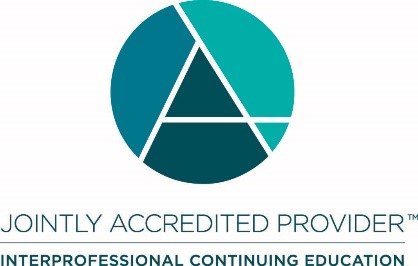Keeping up with the Molecular Targets in the Treatment of Advanced Non-Small Cell Lung Cancer
Targeted therapies are recommended for eligible patients with metastatic NSCLC because survival is longer for patients who receive appropriate targeted therapies. The list of recommended targeted therapies is rapidly increasing; it is difficult for health care providers to stay current with the latest recommendations. Nurses and other health care providers need to be familiar with the new approved agents (and their corresponding molecular biomarkers) and side effects associated with the newer agents, so they can improve care for their patients.
Target Audience
This educational program is designed to meet the educational needs of oncology nurses who manage patients with cancer.
Learning Objectives
Following this activity, participants should be able to:
- Identify the molecular targets for metastatic non-small cell lung cancer (NSCLC).
- Discuss the recommended targeted agents for metastatic NSCLC.
- Describe side effects that may occur with targeted therapies.
Emily A. Skotte, MSN, APRN, ACNP-BC
Vanderbilt-Ingram Cancer Center
NCCN Continuing Education Disclosure Policy
It is the policy of NCCN that every 12 months, all faculty, moderators, activity planners and all internal planning staff participating in NCCN continuing education activities are expected to disclose any financial relationships with a commercial interest. In addition, all faculty presentations have been reviewed to ensure education is fair and balanced and that clinical content presented supports safe, effective patient care. Individuals who do not disclose relevant financial relationships will be disqualified from involvement in the CE activity as a content developer, planner, or presenter.
Definitions
NCCN continuing education considers financial relationships to create a conflict of interest when an individual has both a financial relationship with a commercial interest and the opportunity to affect continuing education content about the products or services of a commercial interest with which he/she has a financial relationship.
NCCN continuing education considers relevant financial relationships as financial relationships in any amount occurring within the past 12 months that create a conflict of interest. NCCN does not set a minimal dollar amount for relationships to be significant. Inherent in any amount is the incentive to maintain or increase the value of the relationship.
Faculty Disclaimers
All faculty for this continuing education activity are competent in the subject matter and qualified by experience, training, and/or preparation for the tasks and methods of delivery.
Faculty presentations may include discussion of off-label use. Faculty will disclose that the use in question is not currently approved by the FDA per the product labeling.
Faculty Disclosures
The faculty listed below discloses no relevant financial relationships:
Emily A. Skotte, MSN, APRN, ACNP-BC
NCCN Staff Disclosures
The NCCN Activity Planning staff listed below discloses no relevant financial relationships:
Mike Abrams; Melissa Esplen; Mark A. Geisler; Kristina M. Gregory, RN, MSN, OCN; Kristin Kline Hasson; Rose Joyce; Karen Kanefield; Lisa Perfidio, MS; Shannon Ryan, CMP; Kathy Ann Smith, CHCP; Sarah Weinstein
The NCCN Clinical staff listed below discloses no relevant financial relationships:
Miranda Hughes, PhD; Amanda E. Visnick, BSN, RN, OCN

In support of improving patient care, National Comprehensive Cancer Network (NCCN) is jointly accredited by the Accreditation Council for Continuing Medical Education (ACCME), the Accreditation Council for Pharmacy Education (ACPE), and the American Nurse Credentialing Center (ANCC), to provide continuing education for the healthcare team.
Nurses
NCCN designates this educational activity for a maximum of 0.75 contact hour.
Available Credit
- 0.75 ANCC contact hours
- 0.75 Participation
Required Hardware/software
To complete this activity, users will need:
- A device with an Internet connection and sound playback capability
- One of the two latest versions of Google Chrome, Mozilla Firefox, or Safari
- Internet Explorer is no longer supported
- Adobe Reader or other PDF reader software for certificate viewing/printing

 Facebook
Facebook X
X LinkedIn
LinkedIn Forward
Forward